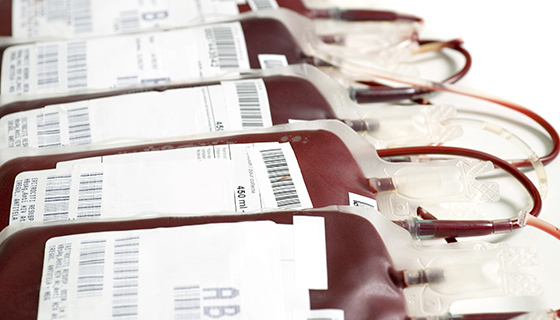June 14, 2025
The National Blood Service Commission (NBSC) has warned of a growing blood supply crisis in Nigeria, stating that the shortfall is severely undermining the management of emergency cases, maternal health, and chronic illnesses nationwide.
Speaking as Nigeria joined the global community to mark World Blood Donor Day 2025, the Director-General of NBSC, Prof. Saleh Yuguda, said the country’s blood collection rate remains critically below the World Health Organisation (WHO) benchmark, despite an ever-growing population.
Prof. Yuguda, who is also a Chief Consultant Haematologist at the Federal Teaching Hospital, Gombe, noted that Nigeria needs a minimum of 2 to 2.2 million units of safe blood annually to meet WHO’s recommendation of 10 units per 1,000 people. However, current statistics reveal that only about 450,000 to 500,000 units are collected each year, barely a quarter of the required volume.
“This glaring deficit significantly affects health outcomes, particularly in maternal health, emergency medicine, and chronic disease management,” Prof. Yuguda said in an interview with The Guardian.
He attributed the shortfall to multiple systemic challenges, including widespread misconceptions about blood donation, low awareness levels, poor donor mobilisation, and inadequate funding and infrastructure. According to him, the situation has led to countless avoidable deaths, not due to a lack of medical expertise but from the unavailability of safe blood in critical moments.
Prof. Yuguda also expressed concern about the low rate of voluntary, non-remunerated blood donations, which he described as one of the most pressing issues facing the nation’s blood service system.
“Blood is often sought only during emergencies, rather than through regular voluntary contributions. This reactive approach makes timely response in life-threatening cases extremely difficult,” he stated.
The NBSC Director-General further highlighted the lack of well-equipped blood banks, especially in rural and semi-urban areas, as well as logistical challenges and weak cold-chain infrastructure for blood preservation. These gaps, he said, continue to undermine effective blood collection and distribution across the country.
He called for a national behavioural shift towards regular, voluntary blood donation and urged both government and private stakeholders to scale up awareness campaigns and infrastructure investment to address the ongoing crisis.
World Blood Donor Day is celebrated every June 14 to recognise and thank individuals who voluntarily donate blood, giving patients in need a second chance at life. The WHO reports that while high-income countries record an average of 31.5 donations per 1,000 people, low-income nations, particularly in Africa, average just 5.0 per 1,000, a disparity that continues to affect patients in trauma units, maternity wards, and cancer centres.
Prof. Yuguda concluded by urging Nigerians to “see blood donation as a civic responsibility and a gift of life,” stressing that a collective national effort is needed to build a resilient and self-sustaining blood supply system.

